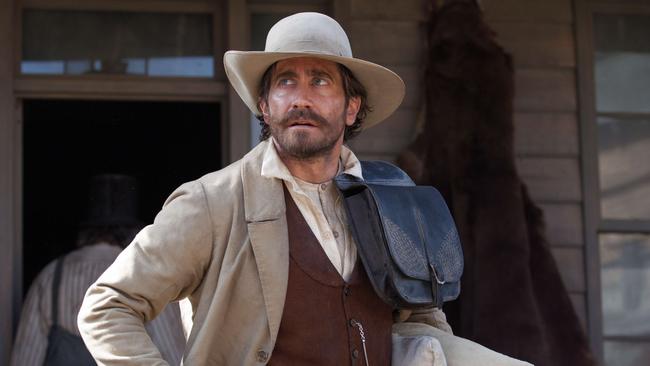Alliance Francaise French Film Festival blossoming in a big way
Following the Rainbow Warrior incident, Australia fell out with the French in a big way, going as far as banning their wines — but 30 years on, South Australians can’t get enough of their films.
The popularity of the annual Alliance Francaise French Film Festival, particularly in South Australia, shows how far the festival has come since the 1980s when French-Australian relations were so bad the insults flew.
In 1985 two French spies had sunk the Greenpeace protest boat Rainbow Warrior in New Zealand, killing a photographer and consigning France to international disgrace.
Relations were strained by 30 years of French nuclear testing in the Pacific; after tests in 1995 there was an attempted embargo on French wine and in 1996-97 the AFFF was cancelled.
“The question raised by a journalist in Sydney in 1995 ‘pourquoi les Français sont des connards’ (why are the French such arseholes?) was doomed to oblivion,” says AFFF director Philippe Platel.
“Now the relationship is at its best, particularly in South Australia, and 185,000 Australian people rush to AFFF nationally.”
Today, the French Film Festival, sponsored by the Alliance Francaise, has become a huge platform for French films that gives audiences a first and sometimes only look at smaller French films, and helps to launch bigger films into the Australian market.
However the selection process can be daunting, and the offerings variable, because of the sheer number of films France produce; the heavily subsidised industry makes 200 to 300 a year compared with about 30 to 40 in Australia.
Platel says he uses the Cannes Film Festival, held in May, to start short-listing the enormous number of films on offer, followed later by Toronto and Venice.
“Every year it’s a new white page. We don’t have preconceptions on a theme, it really depends on the film that I see and the films that will be distributed in Australia,” Platel says.
“Cannes is the beginning of the process and I watch a lot of films.”
Thirty years after starting as an offshoot to the Sydney Film Festival, the AFFF peaks this month with 54 films, including for the first time a zombie genre strand called Danger Sphere. Platel says the idea isn’t to get bigger each year, although this year’s record number celebrates its 30-year milestone.
“Of course this is the 30th anniversary so we wanted to do something special,” he says.
The program’s star attractions include the big-budget High Life, an English-language film from Claire Denis whose previous work includes Let The Sunshine In, with Juliette Binoche.
It stars Binoche again, with Robert Pattinson, and is a confronting, end-of-civilisation story set inside a spacecraft crewed by death-row and long-term prisoners who were sent to space to test a scientific theory about black holes.
Also much-anticipated is The Sisters Brothers, a dark western starring Joaquin Phoenix, Jake Gyllenhaal and John C. Reilly (fresh from playing Oliver Hardy in Stan & Ollie), and based on a novel by Patrick deWitt.
Although filmed in Spain and spoken in English, it qualifies because of French director, Jacques Audiard, the man behind the unforgettable Rust and Bone, starring Marion Cotillard as a whale trainer crippled in an accident.

Platel says he chooses films that move him and leave him thinking once he has left the cinema.
“When you see sometimes five films on a day, they have to be very good to keep me interested and sometimes there are some great surprises,” he says.
“There are some films sometimes I am not so passionate to see but they are a real revelation.”
An example this year was the documentary Le Grand Bal that celebrates the bubble of life surrounding an annual folk-dancing festival in the French countryside and taps incidentally into changing cultural standards.
“If you’re a lesbian looking for a partner, then who chooses who?” Platel says. “When you see this film you realise our traditions are made of so many influences … it’s a beautiful film, it’s like an allegory of the world.”
The horror/zombie strand includes High Life along with The Night Eats The World, about an ex-lover who returns to his girlfriend’s apartment to collect his belongings, falls asleep and wakes to a bloodbath that raises the myth of the undead.
“It takes place in Paris and there is a very traditional Paris building surrounded by zombies,” Platel says.
“Of course it resonates with the attacks in Paris and the terrorism and this anxiety that is very tangible in France.”
In an acknowledgment to the history of French film, a restored version of Last Year in Marienbad will be shown, an enigmatic Left Bank film about a French woman and an Italian man set in a Baroque mansion.
Also celebrated will be Australia’s first films which were shot by a French cinematographer in the first French-Australian cinematic collaboration.
While the first about a cruise ship arriving in Manly has been lost, subsequent footage includes a film of the 1896 Melbourne Cup and another of a roller skater in Prince Alfred Park.
“Maybe that accounts for the success of the French Film Festival and why Australian audiences love it – we have a common background!” Platel says.
